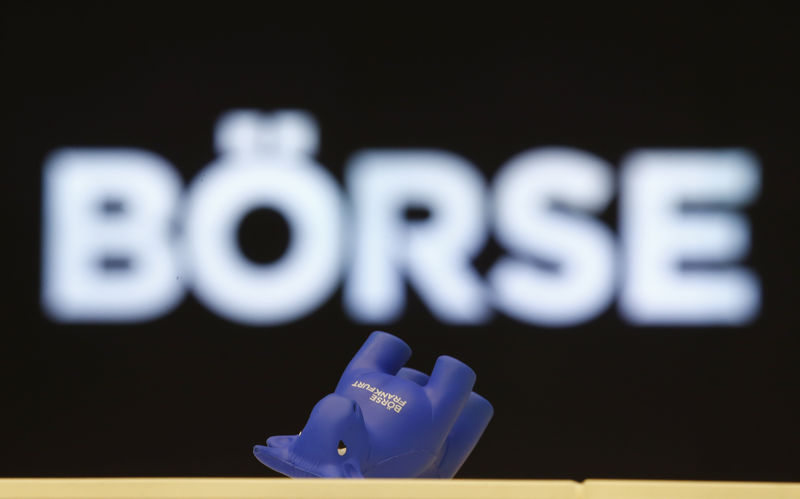This post was originally published on this site
https://i-invdn-com.akamaized.net/news/LYNXNPEEAD0HK_M.jpg
For euro-area stocks, this could be the shortest bear market on record.
Major equity benchmarks from Italy to Germany advanced on Tuesday, taking their gains from last month’s low to 20% or more. The Euro Stoxx 50 Index too has advanced similarly. A close at these levels would technically mark the beginning of a bull market, even if it’s one that sees euro-area shares 25% off this year’s highs.
Traders are turning more optimistic this week as the number of coronavirus infections have slowed in several European countries, while others such as Denmark and Austria are relaxing lockdown measures. The Dow Jones Industrial Average entered a bull market just two weeks after leaving it, though the U.S. blue-chip index has barely made further headway since. The brisk rebound in stocks worldwide adds pressure on investors to take a call on whether to jump back in, take profits or risk losing out on a sharp recovery.
“Well look, volatility works in both directions,” Andre Koppers, a portfolio manager at Oberbanscheidt & Cie, said by phone. “We came from a really low level and have now quickly compensated for this negative exaggeration.” Koppers said the rebound will probably lose steam from here, but there are still good buying opportunities for long-term investors.
While dividend cuts and profit warnings keep coming, a number of companies made positive comments on Tuesday, with Danish medical-equipment firm Ambu A/S raising its sales forecast, Sweden’s Getinge AB saying it’s increasing production of ventilators to meet demand, and Accor (PA:ACCP) SA Chief Executive Officer Sebastien Bazin saying a rebound for the hotel industry will happen at some point.
Still, some caution lingered. Spain reported an increase in cases even as the outbreak showed signs of slowing elsewhere. And the U.K. is facing a leadership crisis as Prime Minister Boris Johnson was admitted to intensive care after struggling to shake off the infection.
“Markets are likely still underestimating how long containment measures will last, and particularly how long it will take to get back to ‘normal’ afterwards,” warned Esty Dwek, head of global market strategy at Natixis Investment Managers Solutions. “We are unlikely to see a general ‘all clear’ and a resumption in activity.”
The benchmark Stoxx Europe 600 Index was up 2.9% at 1:12 p.m. CET, taking its advance from a March trough to 18%. All 19 industry groups rose, with travel and leisure shares — the worst hit in the rout — leading gains with a 9% advance. Cyclical shares also outperformed, with carmakers and banks up more than 5%, while defensives lagged. Every major western-European benchmark was also in the green, including Britain’s FTSE 100 Index, up 3.1%.
A number of sector indexes, including energy, travel & leisure and autos have gained more than 25% since the market low on March 18.
“If we’ve seen the bottom, and cases do peak, and China doesn’t get a second wave, then everyone goes back to work and productivity starts again and we start spending again,” David Vickers, a senior portfolio manager at Russell Investments, said by phone.
“Then you’ll get pent-up demand coming onto the market. At the same time, interest rates are low and fiscal stimulus has been thrown at you. So there’s a very strong chance of a very strong bounce coming out of this if the virus does indeed peter out or some kind of vaccine comes to pass.”
©2020 Bloomberg L.P.

